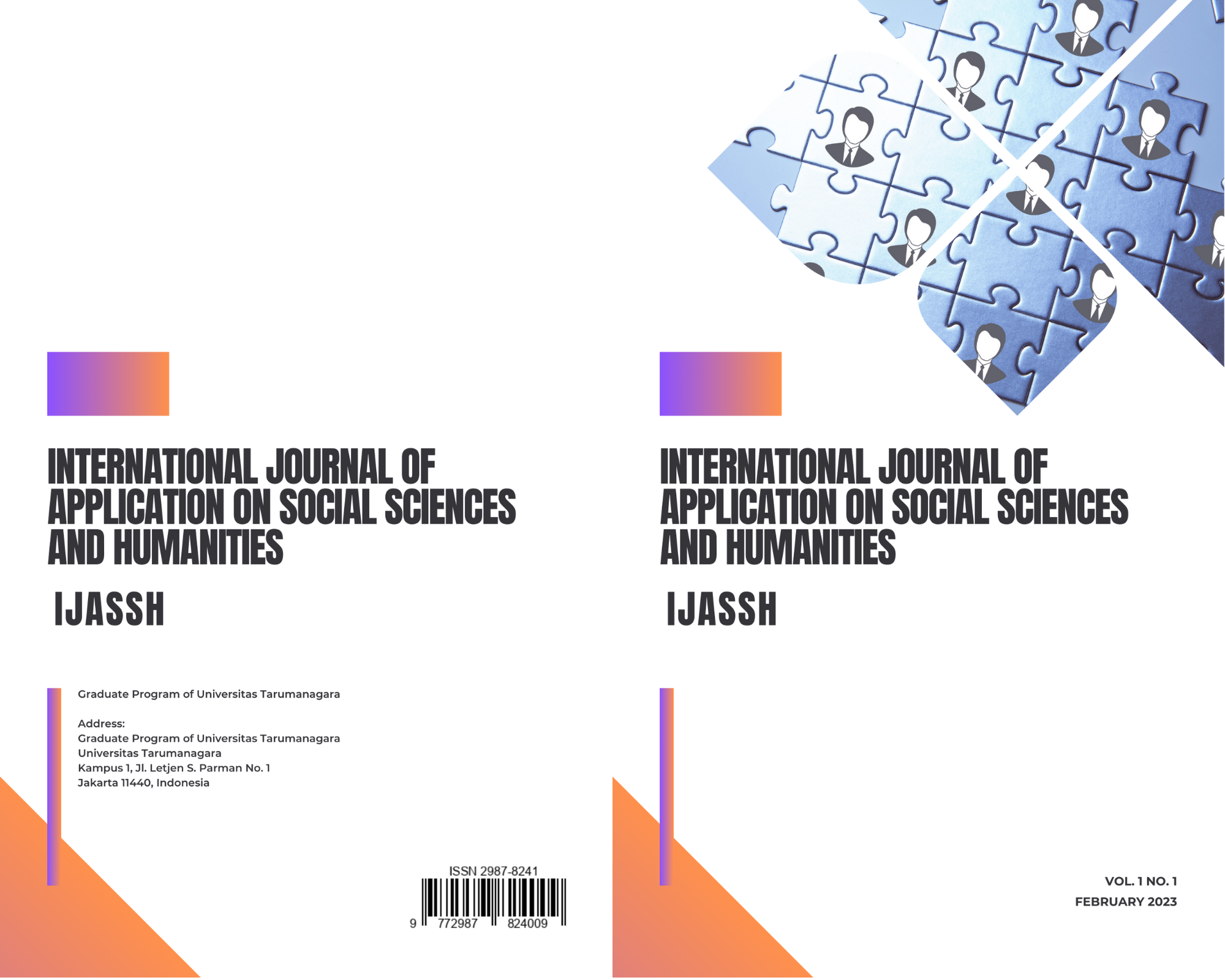Is the Use of Nominees in Any Form Illegal?
Main Article Content
Abstract
The use of nominees in investment has occurred in daily business activities. The nominee is deemed to have violated the existing regulations. Several incidents of the use of nominees have taken the world by storm. The use of nominees has involved several world leaders. The purpose of this study is to ascertain the history of the use of nominees in investment and to determine whether the use of nominees can be classified as money laundering or tax evasion. This study employs a normative juridical methodology. This study concludes that the use of nominees is motivated by money laundering and tax evasion. A nominee may be a trustee or a special purpose vehicle. However, using nominees may result in criminal sanctions if the funds are obtained through criminal acts. Investors and the names used can be considered perpetrators of criminal law violations. The resolution of nominee and money laundering problems must accompany the standardization of population data and tax data. Banning the use of nominees does not solve the problem.
Article Details
Section

This work is licensed under a Creative Commons Attribution-NonCommercial-ShareAlike 4.0 International License.
References
Cruz L. M. M, (2020), “After the Panama Papers... a More Transparent Corporate Business Model?,” Asian J. Lat. Am. Stud., vol. 33, no. 3, pp. 135–259.
Erturk I, Froud J, Johal S, Leaver A, and Williams K, (2010). “Ownership matters: Private equity and the political division of ownership,” Organization, vol. 17, no. 5, pp. 543–561.
Fauzia M, (2021). “Daftar 35 Pemimpin Negara Yang Disebut Di Pandora Papers.”
Fitzgibbon W, (2021). “The Panama Papers: Exposing the Rogue Offshore Finance Industry.”
Harding L, (2016). “Panama Papers.”
Hardianti W. M and Setyowati M. S, (2019). “Implementasi Kebijakan Tax Allowance Dalam Upaya Peningkatan Iklim Investasi Pada Sektor Kelautan Dan Perikanan,” J. Manaj. Pelayanan Publik, vol. 2, no. 2, p. 144.
Indrawan A, (2017). “Implementasi Prinsip Know Your Customer Dalam Mencegah Money Laundering di Industri Perbankan,” J. Manaj. Bisnis dan Kewirausahaan, vol. 1, no. 2, pp. 1–9.
Indriani I, (2017). “Perkembangan Hukum: Perseroan Terbatas Dan Praktik Penggunaan Nominee Oleh Investor Asing,” in Membangun Pardigma Kehidupan Melalui Multidisiplin Ilmu, vol. 7, no. 1, pp. 249–264.
Johan S and Ariawan A, (2021). “Consumer protection in financial institutions,” Leg. J. Ilm. Huk., vol. 29, no. 2, pp. 173–183.
Johan S and Ariawan A, (2021). “Keterbukaan Informasi UU Pasar Modal Menciptakan Asymmetric Information Dan Semi Strong Form,” Masal. Huk., vol. 50, no. 1, pp. 106–118.
Johan S, (2021). “Knowing Company Secrets Through Employee Posts on Social Media,” Diponegoro Law Rev., vol. 6, no. 2, pp. 203–216.
Marzuki M, (2017). Penelitian Hukum: Edisi Revisi - Prof, Revisi. Jakarta: Kencana Prenada Media Grup.
Maharani D. N and Santiago F, (2021). “Legal Smuggling of Share Ownership Using Nominee Arrangements Associated with a Violation of the Negative Investment Lists,” Adv. Soc. Sci. Educ. Humanit. Res., vol. 605, pp. 70–73.
Masulist R. W and Thomas R. S, (2009). “Does Private Equity Create Wealth? The Effects of Private Equity and Derivatives on Corporate Governance,” Univ. Chicago Rev., vol. 219, pp. 219–332.
Musyafaah N. L, Darmawan, Muwahid, and Syafaq H, (2021). “Islamic community organization collaboration in rejecting presidential regulation on alcohol investment,” J. Drug Alcohol Res., vol. 10, no. 9, pp. 1–7.
Pradana A. N and Mulyanto, (2019). “Beneficial Owner Rights in Nominee Agreement,” Int. J. Bus. Soc. Sci., vol. 10, no. 8, pp. 122–127.
Pranita N. K. P and Suardana I. W, (2021). “Perlindungan Hukum Terhadap Nasaba Pengguna Layanan Fintech (Financial Technology),” Kertha Semaya J. Ilmu Huk., pp. 2013–2015.
P. P. R. T. BBC, (2021). “Pandora Papers: Secret wealth and dealings of world leaders exposed.”
Rosada A, (2021). “The Effect of Good Corporate Governance Implementation on Islamic Bank Financial Performance,” Manag. Anal. J., vol. 10, no. 1, pp. 55–61.
Sancaya I. W. W and O’Leary N. H, (2019), “The Nominee Agreement in Bali,” Sosiological Jurisprud., vol. 2, no. 1, pp. 26–31.
Saypan S, (2019). “Legal Problems Concerning Nominee Arrangements in Relation To Foreign Business Under Thai Laws.,” Thammasat Bus. Law J., vol. 10, pp. 80–94.
Salleh K, (2021), “The Duties and Conflicts of Nominee Directors: the Legal Position in Malaysia,” Psychol. Educ. J., vol. 58, no. 2, pp. 1577–1583.
Suardana I. M. B and Wiryawan I. W, (2020). “Kepastian Hukum Usaha Mikro Kecil dan Menengah Dalam Pola Kemitraan Sebagai Penerima Waralaba,” J. Magister Huk. Udayana (Udayana Master Law Journal), vol. 9, no. 3, p. 547.
Tang H and Hou D, (2021). “Research on Legal Issues of Chinese Equity Holding,” Proc. 1st Int. Symp. Innov. Manag. Econ. (ISIME 2021), vol. 185, no. Isime, pp. 74–79.
Wibowo A. T and Prihartinah T. L, (2020). “The Law Impact on the Inheritance of Nominee Arrangement in Indonesia to the Third Party of Share Buyers,” Adv. Soc. Sci. Educ. Humanit. Res., vol. 499, no. Icolgas, pp. 1–7.
Wibowo A. T and Prihartinah T. L, (2020). “The Law Impact on the Inheritance of Nominee Arrangement in Indonesia to the Third Party of Share Buyers,” in 2nd International Conference on Law, Governance and Social Justices (ICOLGAS, 2020), vol. 499, pp. 1–7.
Widijowati R. D and Darmawan H, (2020). “Criminal Liability of Corporate Shareholders,” Int. J. Law, Gov. Commun., vol. 5, no. 20, pp. 69–79.
Yanuar M. A, (2021). “Legal Review of Nominee Shareholders Agreement of Foreign Direct Investment In The Form of Joint Venture Company,” Maj. Huk. Nas., vol. 51, no. 1, pp. 107–125.
Yoshikawa T and Phan P. H, (2005). “The effects of ownership and capital structure on board composition and strategic diversification in Japanese corporations,” Corp. Gov. An Int. Rev., vol. 13, no. 2, pp. 303–312.

